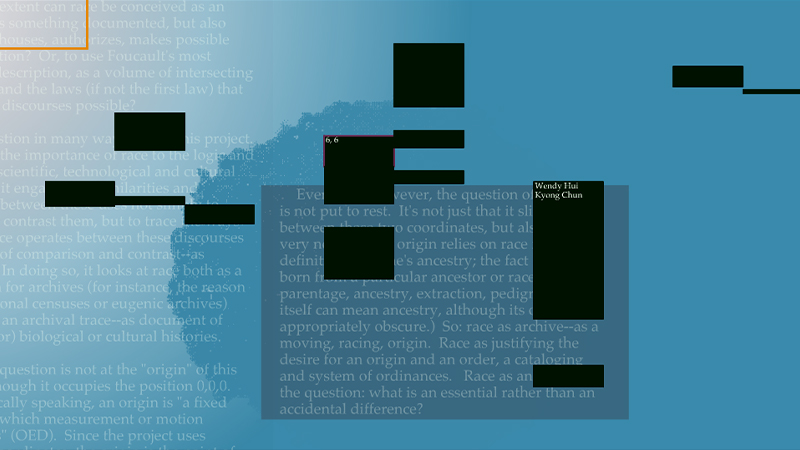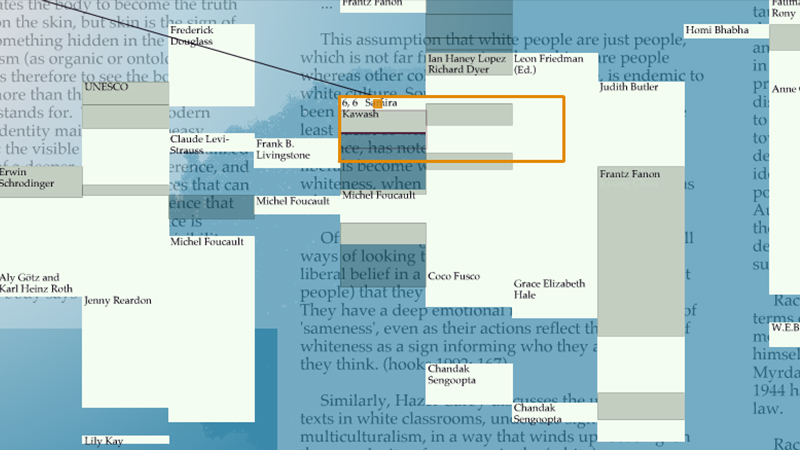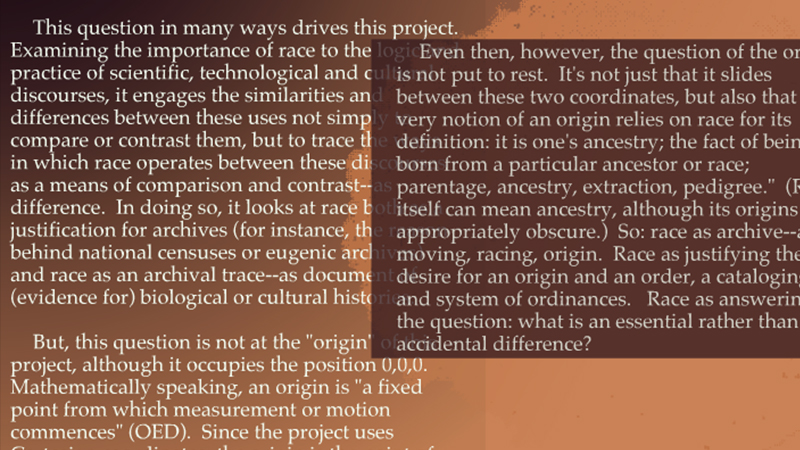"Programmed Visions" is an archive, but one that "will most likely defy and resist any predetermined notion of the archive you bring with you to the project. The digitization initiatives that drive so much of contemporary online culture – from Google Books to our local universities – envision the virtual archive as a kind of seamless information machine bringing the riches of the world to a screen near you with a quick tap of the finger. Such archives privilege transparency, accessibility, standardization, interoperability, and ease of use, lofty goals all, and quite useful when confronted with reams of data. But Wendy Chun and Reagan Kelly want us to think the archive differently. As with several other projects in this issue of Vectors, the piece urges you to shift your line of vision and to think about the larger stakes our frenzy of digitization might likely conceal.
The piece begins by locating race as an archive and also as a potential origin for all archives, 'as justifying the desire for an order and an origin.' As the user begins to navigate, traditional expectations of the cursor's effect are frustrated and denied. Text shifts and emerges via an internal logic that confounds our epistemophilic desires. Historical texts, scientific treatises, legal documents, excerpts of theory, and snippets of fiction all collide. Quotes are cut off, sources are unclear, everything's a bit opaque and chaotic: all in all an archivist's nightmare. Clicking the blue triangle reveals a map of sorts, but there is no easy transit from this overlay to the data 'below.' By segregating the macro from the micro and divorcing the detail from the overview, the piece frustrates our expectations of digital media. From Mapquest to video games, electronic forms and their interfaces encourage us to imagine that we can zoom effortlessly between scales and link easily from point to point. 'Programmed Visions' derails any such pretense of mobility and control in order to take us elsewhere, insisting we can never fully 'know' racial difference or its multiple valences.
Race permeates this archive, even as the archive refuses to unfold for us, underscoring the strange mutability of race as at once origin and effect. The structure of 'Programmed Visions' reminds us, as does an excerpt from Ann Laura Stoler within the archive, that race and racism 'take on the form of other things.' In the interplay between 'form' and 'content,' we are meant to understand that our desires to standardize the world and make it interoperable are not innocent. Such desires inform today's coding practices and information architectures, but they also permeated eugenics in the early 20th century, if in slightly different forms. Race should read as a root cause in such operations, inhabiting our very systems of classification and structure." – Vectors Journal Editorial Staff
1 COPY IN THE NEXT
Published in Fall, 2007 by Vectors in Volume 3, Issue 1.
This copy was given to the Electronic Literature Lab by Erik Loyer in November of 2021.
PUBLICATION TYPE
Online Journal
COPY MEDIA FORMAT
Web


